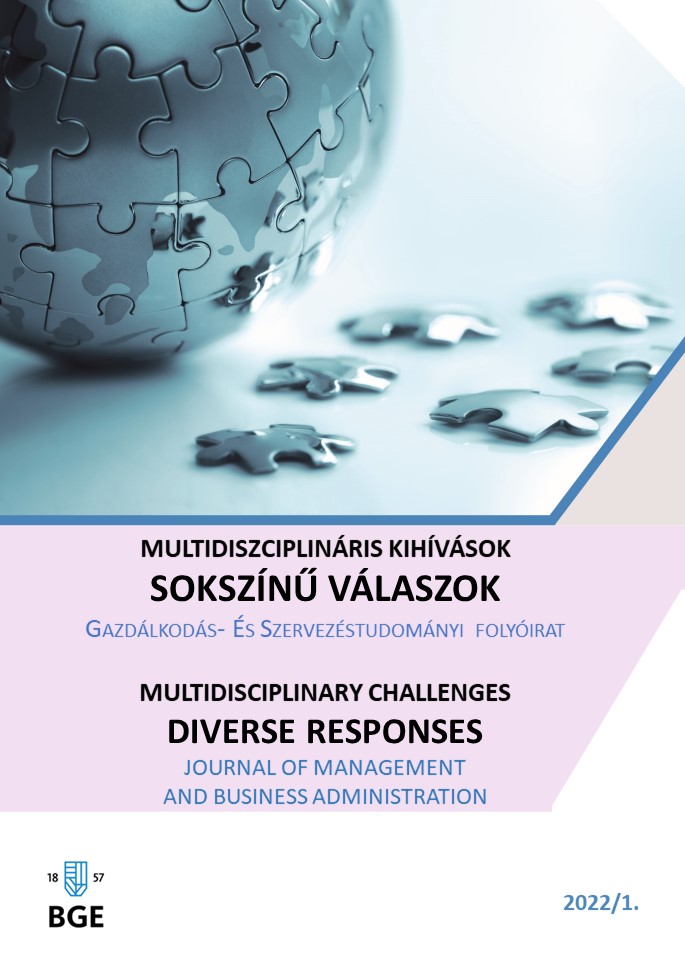Hogyan hatottak a COVID-19 korlátozások a felsőoktatási szektorra Victoria államban?
Nemzetközi hallgatók távoktatásának tanulságai Melbourne-ben
Absztrakt
Ausztráliában a pandémia előtt a szolgáltatási szektor legnagyobb része a felsőoktatás volt, ami túlnyomó részben a külföldi hallgatók által befizetett tandíjakra támaszkodott. Jelen tanulmány célja annak bemutatása, hogy a COVID-19 megszorítások hogyan hatottak a felsőoktatásra és az oktatók és hallgatók életére.
A kvalitatív reflexivitás módszeréhez felhasznált adatok a szerző személyes reflekciói, amelyek a mindennapi élethelyzetek megfigyeléséből származnak. Ezek lehetővé teszik közvetlenül nem megfigyelhető társadalmi és pszichológiai folyamatok módszeres megfigyelését.
A kutatás megbízhatóságának és validitásának biztosítása érdekében feldolgoztuk a releváns szakirodalmat és leíró statisztikákat is bevontunk az elemzésbe.
A COVID-19 pandémia világszerte átalakította a tanítási és tanulási gyakorlatokat a felsőoktatásban, bár a korlátozásoknak pozitív kimenetele is van. Ezeket legjobb gyakorlatokon, valamint néhány új, a pandémia ideje alatt megjelent készségen keresztül mutatjuk be remélve, hogy érdekes és hasznos ismeretekhez jutnak nem csak a szakemberek, hanem szélesebb körben a társadalom is.
Hivatkozások
ABS, Australian Bureau of Statistics, 2020. Catalogue Number 5368.0.55.003
Bairagi, R. K., 2020. Impacts of COVID-19 on Australian Higher Education Export-A Discussion. Journal of Economics and Sustainable Development, 11(18), 26-28. https://doi.org/10.7176/JESD/11-18-03.
Beames, J. R., Christensen, H., & Werner-Seidler, A., 2021. School teachers: the forgotten frontline workers of Covid-19. Australasian Psychiatry. 29(4), 420-422. https://doi.org/10.1177/10398562211006145
Chaparro, Hernán, 2002. Review: Noelie Rodríguez & Alan Ryave (2002). Systematic Self-Observation [20 paragraphs]. Forum Qualitative Sozialforschung / Forum: Qualitative Social Research, 3(4), Art. 53, http://nbn-resolving.de/urn:nbn:de:0114-fqs0204532
Croucher, G. & Locke, W., 2021. A post-coronavirus pandemic world: some possible trends and their implications for Australian higher education. MELBOURNE CSHE DISCUSSION PAPER. https://melbourne-cshe.unimelb.edu.au/__data/assets/pdf_file/0010/3371941/a-post-coronavirus-world-for-higher-education_final.pdf
Dodd, R. H., Dadaczynski, K., Okan, O., McCaffery, K. J., & Pickles, K., 2021. Psychological Wellbeing and Academic Experience of University Students in Australia during COVID-19. International Journal of Environmental Research and Public Health, 18(3), 866. MDPI AG. Retrieved from http://dx.doi.org/10.3390/ijerph18030866
Doidge, S. & Doyle, J., 2020. Australian universities in the age of Covid, Educational Philosophy and Theory, 54(6), 668-674. https://doi.org/10.1080/00131857.2020.1804343
Eri, R., Gudimetla, P., Star, S., Rowlands, J., Girgla, A., To, L., Li, F., Sochea, N., & Bindal, U., 2021. Digital resilience in higher education in response to COVID-19 pandemic: Student Perceptions from Asia and Australia. Journal of University Teaching & Learning Practice, 18(5). https://doi.org/10.53761/1.18.5.7
Ewing, LA., 2021. Rethinking Higher Education Post COVID-19. In: Lee, J., Han, S.H. (eds) The Future of Service Post-COVID-19 Pandemic, Volume 1. The ICT and Evolution of Work. Springer, Singapore. https://doi.org/10.1007/978-981-33-4126-5_3
Leask, B. & Ziguras, C., 2020. The Impact of COVID-19 on Australian Higher Education. International Higher Education. Number 102_Special issue. https://www.internationalhighereducation.net/api-v1/article/!/action/getPdfOfArticle/articleID/2914/productID/29/filename/article-id-2914.pdf
Lin, Y & Nguyen, H., 2021. International Students’ Perspectives on e-Learning During COVID-19 in Higher Education in Australia: A Study of an available online at www.ejel.org
Mursitama, T. N., Karim, M. F., & Arnakim, L.Y., 2021. ASEAN and Its Relevance amidst Pandemic. Journal of ASEAN Studies, 9(1), https://doi.org/10.21512/jas.v9i1.7648
Nash, M, Churchill, B., 2020. Caring during COVID-19: A gendered analysis of Australian university responses to managing remote working and caring responsibilities. Gender Work Organ. 27: 833–846. https://doi.org/10.1111/gwao.12484
PwC, 2020. Where nextvfor tertiary education? August 2020. How the COVID-19 crisis can be the catalyst to reboot towards a stronger sector. https://www.pwc.com.au/government/where-next-for-tertiary-education.pdf
Riley, P., See, S-M., Marsh, H., & Dicke, T., 2021. The Australian Principal Occupational Health, Safety and Wellbeing Survey (IPPE Report). Sydney: Institute for Positive Psychology and Education, Australian Catholic University.
Ross, J., 2020. Economic ramifications of the COVID-19 pandemic for higher education: a circuit breaker in Australian universities’ business model?, Higher Education Research & Development, 39(7), 1351-1356, https://doi.org/10.1080/07294360.2020.1825350
Universities Australia, 2020. Built on bright ideas. https://www.universitiesaustralia.edu.au/stats-publications/
Universities Australia, 2021. Investment in Australia’s universities = investment in a more productive future. https://www.universitiesaustralia.edu.au/stats-publications/
Thatcher, A., Zhang, M., Todoroski, H., Chau, A., Wang, J., & Liang, G., 2020. Predicting the Impact of COVID-19 on Australian Universities. Journal of Risk and Financial Management, 13(9), 188. MDPI AG. Retrieved from http://dx.doi.org/10.3390/jrfm13090188
Welch, A., 2022. COVID Crisis, Culture Wars and Australian Higher Education. High Educ Policy. https://doi.org/10.1057/s41307-022-00265-1


























